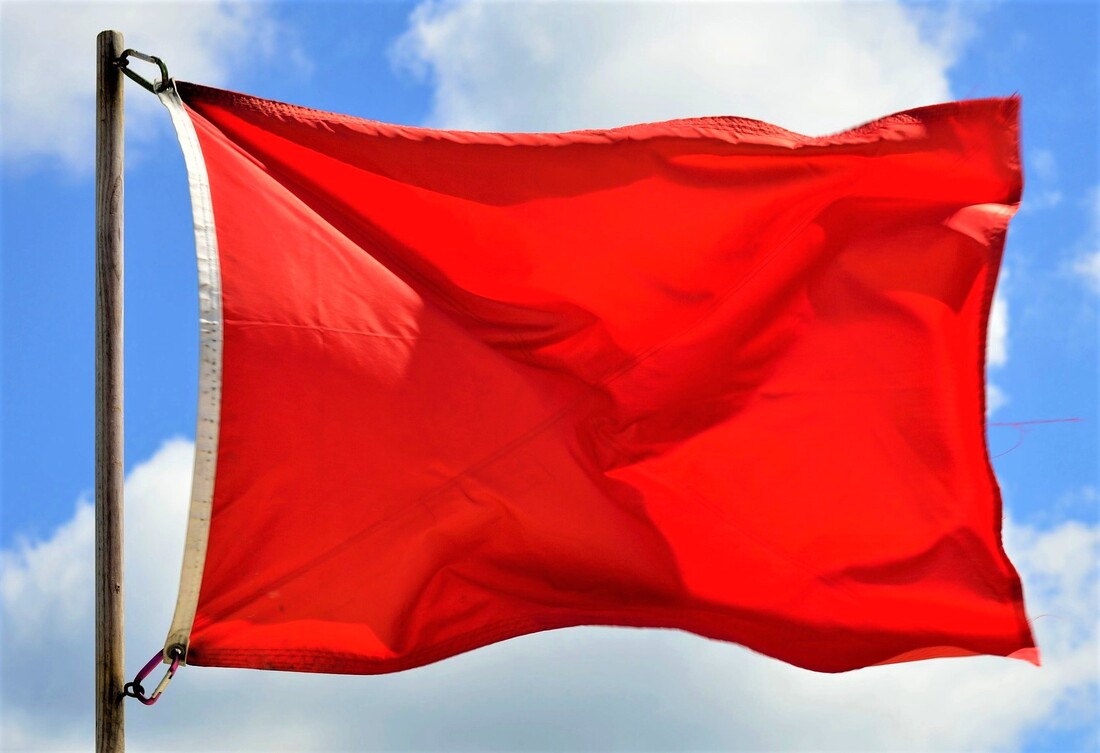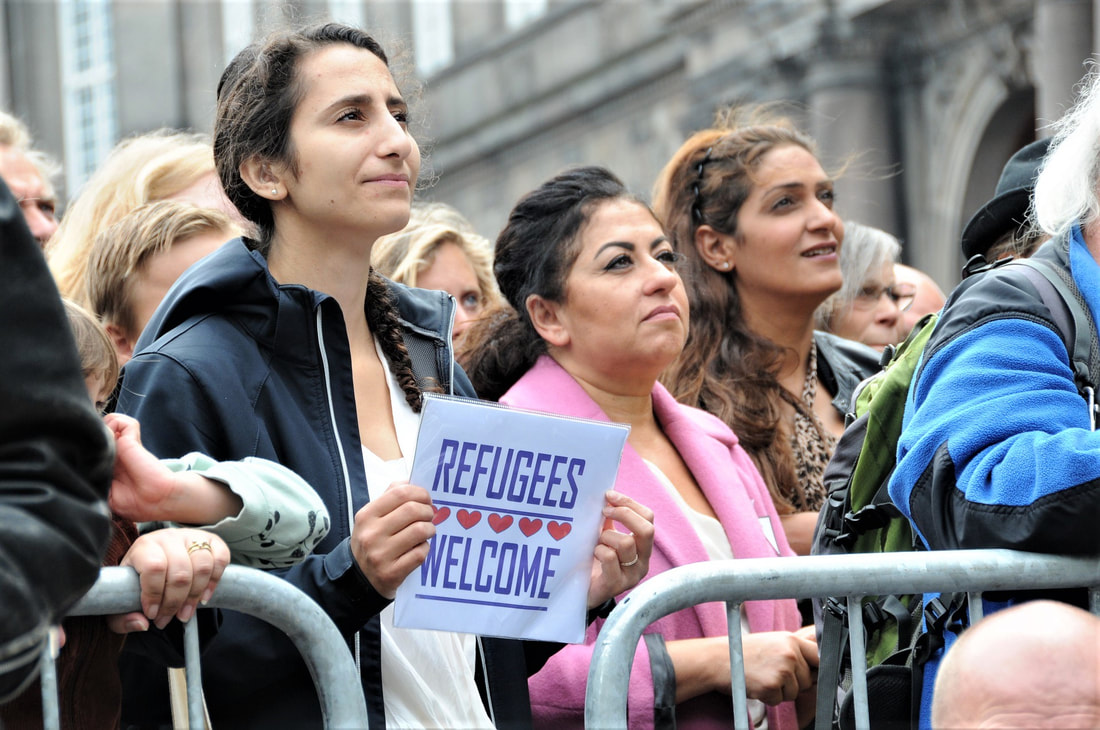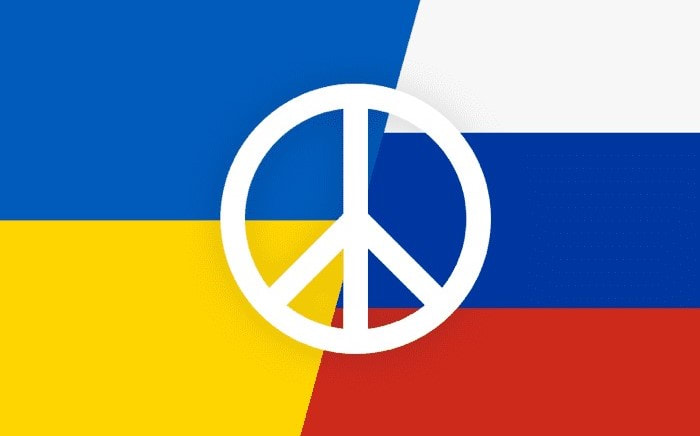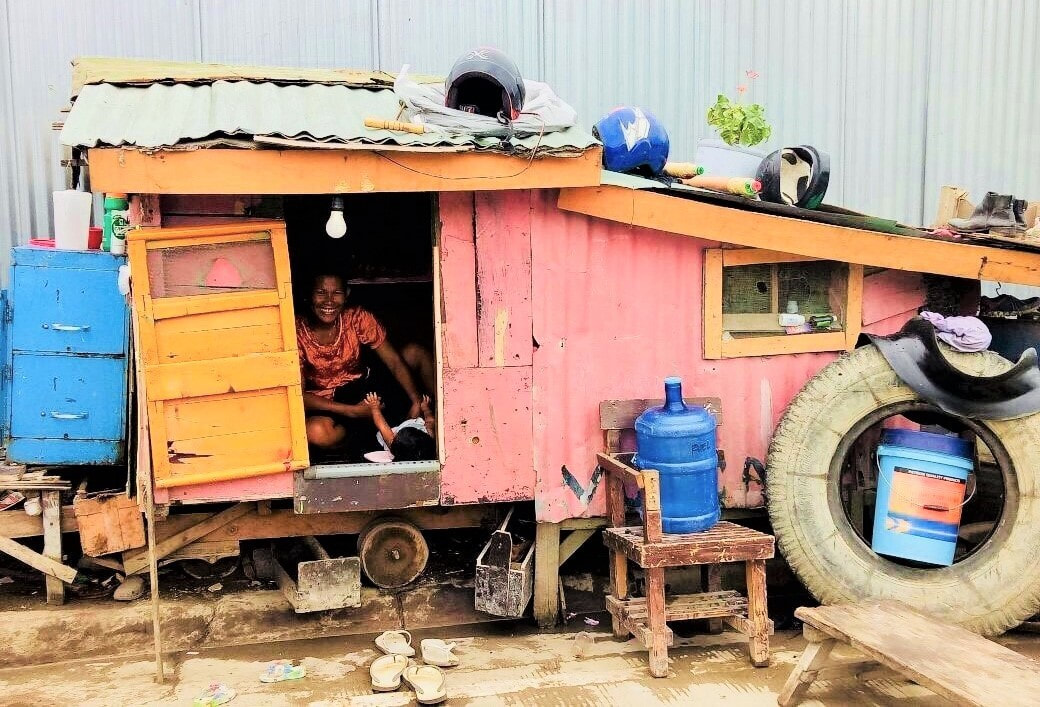|
'What is the true cost of a hoodie?' (Hannah Marriott) I hate it. She works in a textile factory in South East Asia, more commonly known as a sweat-shop, for £4.50 (US$ 6) per day. It’s long hours in sweltering conditions and arduous, back-breaking work. The little money she earns is barely enough to feed herself and her small children. If she, or they, get sick or injured, they're in deep trouble. With no discretionary income, she would need to borrow from a loan shark to pay for a doctor, medicine, or whatever else they may need. The extortionate fees and harsh interest rates make even the most rudimentary healthcare impossible, out of reach. The parent company, a well-known global brand, feels pressure from its customers to ensure that its clothing is produced ethically. Most consumers don’t wonder or ask how it’s possible we can buy a t-shirt in the UK for just £5 that was manufactured on the opposite side of the planet. Somebody, somewhere at the sharp end, is paying a heavy price. The company decides to visit the factory to carry out an inspection. On hearing this, the local HR manager calls all the employees, mostly women, together: ‘You will smile and tell them we pay you £10 per day and provide you with 3 healthy meals a day – or else.’ This half-whispered threat is far from idle. The women know that, if they were to blow the whistle, they would be dismissed as soon as the inspectors leave. That would plunge them and their families into even worse poverty, if that were possible, and there are plenty of other poor women outside willing to take their place. All the while, the local managers pocket the difference that the parent company intends for its workers. They wear smart clothes, live in nice houses and drive around in expensive cars. They know they can bribe any official to whom a desperate worker may dare to appeal. Money talks. Do we care? What can we do? Write to your MP (your political representative). Write to your favourite brand CEO. Check out: Clean Clothes Campaign; Business & Human Rights Resource Centre. ('The Asia Pacific region employed roughly 65 million garment workers in 2019, the most recent year for which data is available, according to the International Labour Organisation. 80% of garment workers globally are women.' Tara Donaldson, WWD)
28 Comments
'Management speak is the strangling of language. It is the wringing out of any meaning from once-beautiful words.' (Chris Huet) Research published this week by the UK communications firm, Enreach suggests that, in the UK, management-speak still annoys and irritates. Expressions such as: blue sky thinking; thinking outside the box; low hanging fruit; and touching base appear to provoke particular disdain. Yet what is it about these phrases that triggers such strong and cynical reactions? Duncan Ward, author of the survey, proposes two principal reasons: that jargon conveys inauthenticity by presenting: (a) a smokescreen – an attempt to hide shortcomings; or (b) a façade – an attempt to impress others. Ward also reflects that, given that many people are now not working face-to-face partly owing to the residual effects of Covid restrictions, clear communication is considered as essential. My sense is that, in an egalitarian social media era where soundbites and short-sharp messaging are the norm, people are also impatient of any language that comes across as pretentious or waffly. Against this backdrop, management jargon is disliked at work because it creates a fog factor: clouding rather than clearing. It blocks – rather than builds – relationship, meaning and trust. Viewed through a cross-cultural lens, the UK sometimes looks down on language it perceives as imported. It likes to see itself as culturally sophisticated; using simple, clean language. Management-speak is perceived as originating in the United States and with that, for some people, it carries an underlying (and, I hasten to add, unfair) judgement of superficiality. This is one possible reason why I believe Scott Adams' satirical Dilbert was so popular in the UK. We were able to smile at a phenomenon ‘over there’, whilst also to recognise its growing influence ‘over here’. Ward added that most respondents use jargon, in spite of disapproving of it. I can add my own name to that list of offenders. I worked with Peter Robson, a great leader who came from a very different background. At my first appraisal, he said, ‘When you speak in OD language, I have absolutely no idea what you’re talking about.’ He also added, in generous spirit, ‘Yet I have seen and felt the impact of what you do. It’s like magic. Whatever it is – keep doing it!’ Ward concludes simply that: ‘people would prefer to understand more clearly what their colleagues mean.’ What jargon phrases do you find yourself using? Which wind you up most – and why? ‘Instead of singing the same song in different ways, we need to learn to sing a new song.’ (Nancy Akanbombire) I took part in a fascinating international webinar this afternoon organised by INTRAC: ‘Shifting the Power through Organisation Development’. It called for fundamental shifts in the ways in which we perceive ourselves, others and our work, particularly as consultants engaged with civil society and civil society organisations (CSOs) throughout the world. It also challenged us to examine our stance and approach by applying critical reflection and critical reflexivity to our relationships and practice. Underlying values of humility, courage, curiosity, engagement and co-creation shone throughout. The overriding theme, which extends well beyond organisation development (OD) and our work with CSOs, was how to make a paradigm shift that enables sustainable transformation. This is a big question and one that we now face urgently in so many different contexts globally. Our tried-and-tested ways of thinking about, construing and addressing situations are somehow leading us into disaster after disaster – and the stakes couldn’t be higher. This ought to be raising some serious red flags, not just Ukrainian flags: and the fact that it isn’t should be cautioning us to think very hard. Take, for instance, the devastating war in Ukraine that risks disastrous consequences for the lowest-income countries where fuel, energy and food security are already at crisis point, yet our gaze is fixed on Europe. Take the climate emergency that still threatens to kill the entire world, yet captures our attention for a brief moment then slips back to the fringe. Take the on-going Covid crisis with risks of a variant emerging from anywhere that could wipe out all of humanity, yet only 1% of people in the poorest countries have yet been vaccinated. What powers and vested interests lay hidden here? I raised a red flag with some friends this week: ‘Why are we putting up Ukrainian flags everywhere, and not Russian flags?’ The response was instinctive and immediate: ‘Firstly, we want so show solidarity with Ukraine that is on the receiving end of a brutal and unjustified attack by Russia. Secondly, if we put up Russian flags, it would look like we’re supporting Putin.’ I get it. So, I asked a second question: ‘So what about showing solidarity too with the Russian people who are proud to be Russian, who are horrified by Putin’s war and who are also suffering terribly for showing dissent?’ The room fell silent. Now, a third question: ‘This war - how did we get here?’ Again, an instinctive response: ‘Russia’s aggression.’ The Russian military is aggressive in Ukraine, and the Russian police is aggressive in Russia. Yet that’s an answer to a different question. ‘Do you think NATO expansion to Russia’s borders could have been an influencing factor?’ One frustrated person came straight back at me angrily: ‘You’re acting like a spokesperson for the Kremlin.’ I had touched on a nerve, a boundary: what is acceptable to think, what I’m allowed to ask. Yet this itself is the real learning edge. So – why do we shrink back? Why do we allow simplistic answers, binary narratives and biased judgements to so easily dominate our discourse; and why do we work so hard to defend them? Why is implicit or explicit silencing so prevalent, including in democratic societies that depend on critical debate as a core value, learning opportunity and safeguarding mechanism? The scale and complexity of the issues we face can evoke anxiety, and to face the fear can feel threatening. We retreat to where it feel familiar and safe: where red flags are torn down – and that could be our undoing. ‘The willingness to experiment, it turns out, is the chief indicator of how innovative a person or company will be.’ (Hal Gregorson) Test and Learn is an experimental, adaptive technique, used to address complexity, uncertainty and innovation. It’s useful in situations where, say, past experience isn't a reliable guide for future action because e.g. critical conditions have changed. It’s also useful when moving into new, unchartered territory where the evidence needed for sound decision-making can only be generated by, ‘let's suck it and see’. It shares a lot in common with action research: create a tentative hypothesis, step forward, observe the results, try to make sense of them, refine the hypothesis, take the next step. Test and Learn is used in fast-paced, fluid environments, such as by rapid-onset disaster response teams where conventional strategizing and planning isn't realistic or possible. By the time a detailed plan is formulated, things have moved on - and the paper it's written on is sent for recycling before the ink has dried. Test and Learn is also used by marketing teams when testing new products or services or seeking to penetrate new or not-yet-known markets. It provides tangible evidence based on customer responses which, in turn, enables change or refinement before investing further. What psychological, relational and cultural conditions enable Test and Learn to work?
When have you used Test and Learn? How did you do it? What difference did it make? (See also: Unpredictable; Adaptive) Turn on the TV and you will see heart-breaking scenes of streams of desperate people, frightened, shell-shocked and displaced by war, fleeing within Ukraine or escaping across crowded borders into neighbouring countries. It’s a tragic and all-too-familiar scene. Not that long ago, we witnessed similar images of dispossessed and traumatised people, at that time clinging together in crowded boats or walking on long roads, trying to reach safety away from the ravages of a brutal war in Syria. It's tempting, in such circumstances, to compare and contrast. Why, for instance, is Poland throwing its doors wide open to Ukrainian refugees whereas it was decidedly reluctant to do so for Syrian refugees? Is this evidence of endemic racism? It is because Ukrainians are white, because they ‘look like us?’ – as more than one TV reporter asked this week. These are important questions... and they also risk pitching one set of refugees against another, as if competing for empathy and support. I’ve had the personal privilege of working in the UK alongside asylum-seekers and refugees from countries as diverse as Afghanistan, China, Congo, Egypt, El Salvador, Eritrea, Honduras, Iran, Iraq, Kurdistan, Mali, Mexico, Somalia, Sudan, Syria, Turkey, Vietnam and Yemen. Up-close, every person is unique, has a name, and carries his or her own lived experience, his or her own individual story. Step back, and we can discern patterns shaped by e.g. culture, history, language, narrative and geopolitics. In some significant respects, I believe European public discourse concerning the Ukrainian refugee situation is different to that in 2015. Geopolitical factors include: Ukraine borders directly with Europe, vs Syria lays at a geographical distance; Ukraine is perceived primarily as an invasion by a foreign power, vs Syria was viewed primarily as a civil war; Ukraine is perceived in simple terms as a ‘hero’ against a ‘villain’, vs Syria was perceived as a complex conflict between multiple ‘villains’. Cultural factors include: Ukrainian refugees are perceived as culturally- and pro-European, vs asylum-seekers in 2015 who came from a diverse range of countries and cultures – often perceived as hostile to European liberal values and cultures; Ukrainian refugees are primarily women and children and, therefore, considered most-vulnerable and least-threatening, vs asylum-seekers in 2015 were perceived as primarily men and, therefore, considered least-vulnerable and most-threatening. If we are willing to pause and reflect openly, honestly and critically, we can see that the stance we take reveals all kinds of underlying personal and cultural beliefs, values, assumptions and biases – including whom we consider worthy, or not, and why. The media plays a very powerful role since most of what we believe and think we know about asylum-seekers and refugees is mediated via media. The ‘news’ is a blend of info and drama, with an agenda. Let’s not fan the flames of a refugee war. (For further reading in this area, see: Alexander Betts & Paul Collier, Refuge: Transforming a Broken Refugee System (2018)) The war in Ukraine is terrible and devastating. Yet - why is the UK media largely reporting only one side of such a complex and painful story? As the West, we still need to answer a fundamental and critical question posed by a Russian diplomat on Friday: ‘For the past several decades, our country has repeatedly raised how we feel in danger after you moved your military infrastructure in our direction. We don’t like it and we feel in danger and we can’t close our eyes to it: so why are you doing it?’ (Reuters) Is this just Russian deflection: smoke and mirrors? It's tempting to dismiss that which doesn't fit with our chosen narrative, yet we don’t secure or safeguard democracy or peace by seeing or hearing only that which we want to see or hear. What do you think? Geopolitics is like a game of chess in which half the pieces are invisible and nothing is what it seems. A key to making sense of what’s happening, of what different parties are doing, is to consider each player's underlying moves and motives in terms of: location and territory, access and resources. It revolves around strategies and tactics, often hidden, sometimes using distraction or misdirection to draw attention to one arena whilst making a play in another. It’s a sophisticated game; one that’s designed to increase one’s own security, wealth and advantage via influence and control. It begs some critical questions as we look across the world, e.g. Why are things as they are? What is really going on here? What is holding our attention? What are we not-noticing? Who is shaping the narrative? Who stands to benefit most? In some contexts, asking such searching questions will lead to disapproval at best or a bullet from a passing motorcyclist at worst. Hidden forces may conspire to preoccupy us with pleasure, entertainment, drama, busyness, materialism – anything that will prevent us from pausing long enough to take a cold, deep, hard look: to think, listen, wonder, ask and pray. I wrote a reflective piece some time before the UK Brexit Referendum, focusing on the European Union’s strategy of expansion and policy of centralisation. I questioned whether it could fuel far-right nationalism and lead to serious conflict in countries like Ukraine. Some friends who described themselves as liberal were furious: the EU ensures unity and peace. I wrote a short subsequent piece, questioning whether NATO’s expansion eastwards could equally feel threatening to Russia and create conditions for war. Some people agreed this time – but were too afraid to say it openly. This is how power, vested interest and group-think play out. We see Russian police silencing people who dare to speak out against a brutal and self-defeating war in the Ukraine, and UK politicians silencing people who dare to question NATO, accusing them (wrongly) of supporting Putin. We don’t see any spotlight shining on the background transnational arms industry’s profits – and the influence that kind of money can exert over political decisions. Global weapons expenditure was $1981bn in 2020 and countries everywhere now are racing at breakneck speed to increase ‘defence’ budgets. We do see heart-breaking scenes portrayed on TV and social media of frightened children, frail elderly people and families torn apart, hiding in basements or fleeing bombardment in Ukraine. We don’t see the ripple effects across the rest of the world on countries and people that were already the poorest and most vulnerable. Fuel, energy and food prices are spiralling, corruption is rife and the costs of even the most basic commodities are soaring terrifyingly. Insecurity and instability drive people to prioritise ‘strong leaders’ over democratic values. Half the pieces are invisible – and nothing is what it seems. (For introductory reading on Geopolitics, see: Klaus Dodds: Geopolitics - A Very Short Introduction (2019); Amedeo Bettauer: Geopolitics Explained (2019)). In my first encounters with the Philippines, I was surprised by how often people asked me about my meals. ‘Have you eaten?’ This included during conversations online. I learned, over time, that the question arises out of an economic context in which food is often scarce owing to high levels of poverty, and a cultural context in which the health and well-being of one’s neighbour is considered important. It means the question is literal and it calls for a literal response. If I answer ‘no’ while I’m there physically, I’m likely to be offered and given a meal; even if the person who’s asking is poor. Rudo Kwaramba, a Zimbabwean colleague, explained a similar dynamic whilst working together on an assignment in Uganda. I had been invited there to help an NGO address a key challenge: that managers in rural community-based projects were, apparently, bad at addressing poor performance. Rudo reflected: ‘In wealthy countries, if you can’t earn an income or lose your job, your government provides you with financial support; if you become injured or unwell, your health system or insurance covers you. In poorer countries, people can only look to each other for support.’ It means that, in such contexts, to establish and maintain positive relationships with one’s extended family and neighbours is essential for survival. It also means that to support the health and wellbeing of one’s neighbours is critical too. There is a sense of radical interdependence, a pragmatic-ethical need, that drives cultural behaviour. Against that backdrop, we discovered that managers who were living and working in the same communities as their staff felt unwilling and unable to address poor performance – in case it damaged the network of relationships. It was the core issue for them. This insight moved the culture-shift question in the work from a simplistic-transactional, ‘How to change the performance management system’, to a deeper-relational, ‘How can we hold honest conversations that don’t harm community?’. It proved transformational. As I focus back on South East Asia, I notice that as some countries have grown in wealth, they have experienced a corresponding shift towards individual-orientated cultures. It's as if: the richer I am, the less I need you. ‘Have you eaten?’ is often retained, yet as a simple greeting, not as a literal inquiry or as an invitation to a meal. So, I’m curious: what have been your experiences of working cross-culturally? What have you learned? |
Nick WrightI'm a psychological coach, trainer and OD consultant. Curious to discover how can I help you? Get in touch! Like what you read? Simply enter your email address below to receive regular blog updates!
|











 RSS Feed
RSS Feed